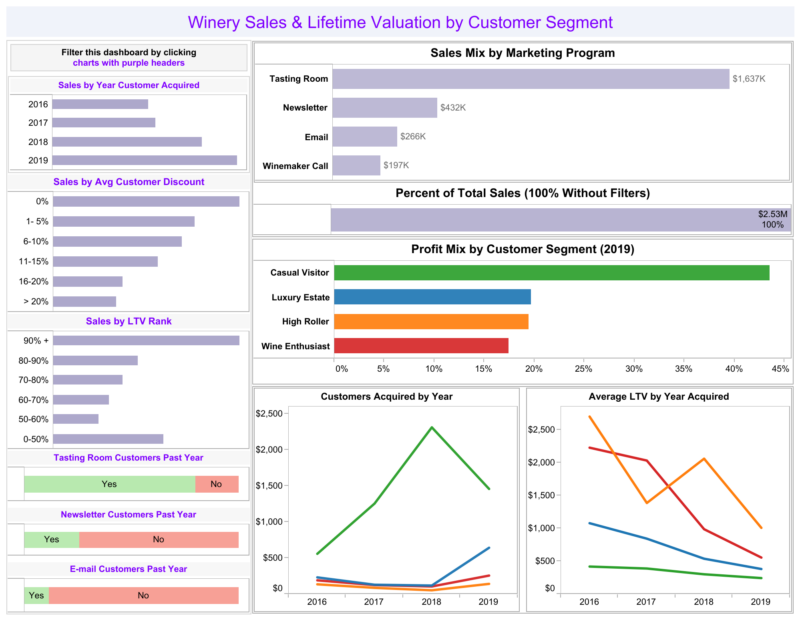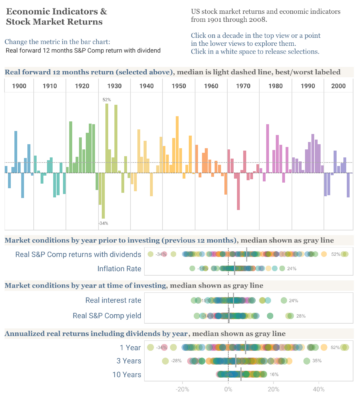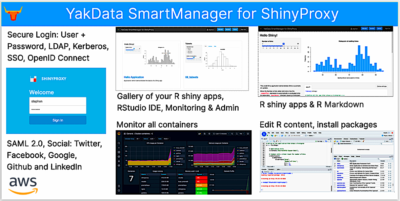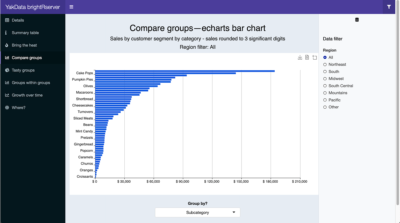What is a dashboard?
It’s simple really. In the words of one of the leading educators about marketing dashboards, a dashboard is a… “A visual display of the most important information needed to understand and manage one or more areas of an organization which fits on a single computer screen so it can be monitored at a glance.”
— Stephen Few, Perceptual Edge

Why a dashboard?
Now that we have a clear picture of what a dashboard should deliver technically, it may be useful to consider why are dashboards so important? Because well designed dashboards will enlighten and empower the business on a periodic basis. Truly great marketing dashboards will enable better decisions and inspire new, unforeseen questions in the business that can deliver transformational results in long-term success.
Real-world marketing dashboard challenges
While dashboards can deliver great value in your organization, there are many common challenges in successfully creating, deploying, and supporting them.
• Finding, cleaning, analyzing and incorporating the right data sources can consume much of your dashboard project’s development time. In fact, data management often consumes 50-70% of project time. Many teams hit this roadblock unexpectedly and may abandon the project in frustration.
• Dashboards will go unused if the targeted user base is not considered, consulted and used to validate the final product. If the dashboard is lacking useful information, confusing or overloaded with extraneous information, users will not adopt them in their every day work. Examples of audience quotes about unfulfilled dashboard project might include, “We thought it was cool, but it doesn’t quite tell us what we truly need to see if the program is on target.”
• Many commonly touted dashboard tools can require weeks of expert programming. Even worse, the developers required of some of these dashboards are not business analysts, but rather expert developers that can be hard to secure. This issue can be avoided by selecting the right dashboard platform, one that requires no programming knowledge but rather uses analysis results and simple menus to enable dashboard development.
• The skills and knowledge of good data presentation and dashboard design principles are rare. Regardless of the chosen tool and access to good data, poor presentation of results can prevent the audience from seeing and understanding the outcomes hidden in the data.
• There are marketing-specific challenges as well. For example, many marketers have inadequate metrics to shed insight into and across their programs. Often, critical data is locked up in program and vendor-centric data “silos”. Or, multiple cloud data sources used by SaaS (software as a service) marketing platforms are overly simplistic and difficult to pull meaningful data from.
So, how can you overcome some of these challenges? Let’s tackle these issues by sharing advice regarding making the data available to your dashboard and creating great dashboards.
Creating a great dashboard — 4 ways to evaluate success
The secret to a great dashboard is ensuring that it answers important business questions. So the primary consideration in creating a great dashboard is understanding the business goals of the dashboard audience. Search for and jointly identify the key questions around those business goals.
1. Information First
2. Designing great strategic dashboards
3. Great analytic dashboards
4. General design considerations
Read the White Paper
Interact with a dashboard from the White Paper
Interact with the analytic dashboard from the White Paper
Download the White Paper
Conclusion
Dashboards can be an incredibly effective tool for marketers. They help working teams focus on the right areas, easily communicate with and inform management as to strategic marketing issues, and help managers identify and solve emerging issues early. Your dashboards should enlighten and empower your audiences, enabling better decisions and inspiring new questions across the business. But core to effective dashboards is listening to the audience, designing them in alignment
About
This paper was originally written by Stephen McDaniel in collaboration with Tableau Software.



